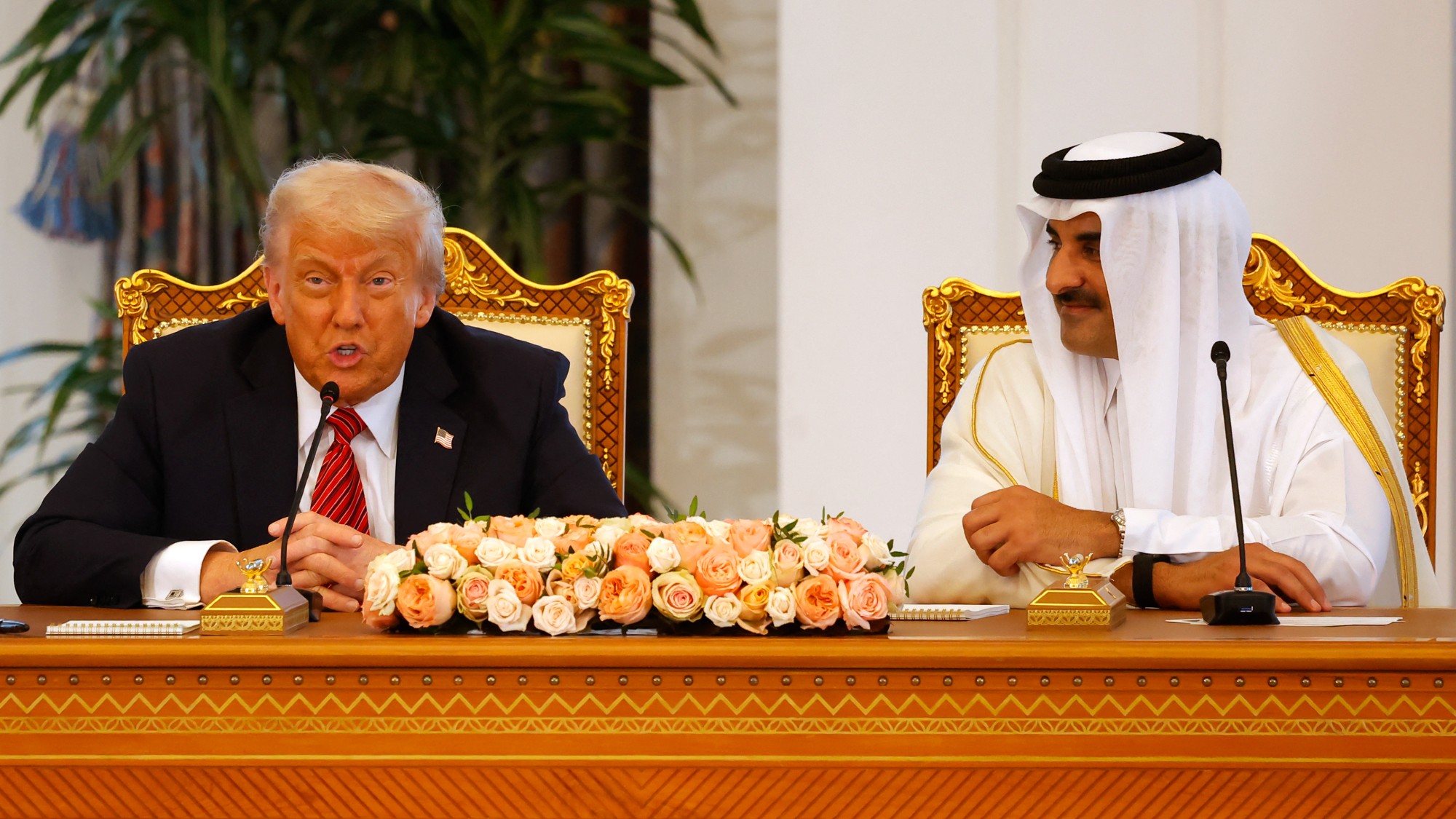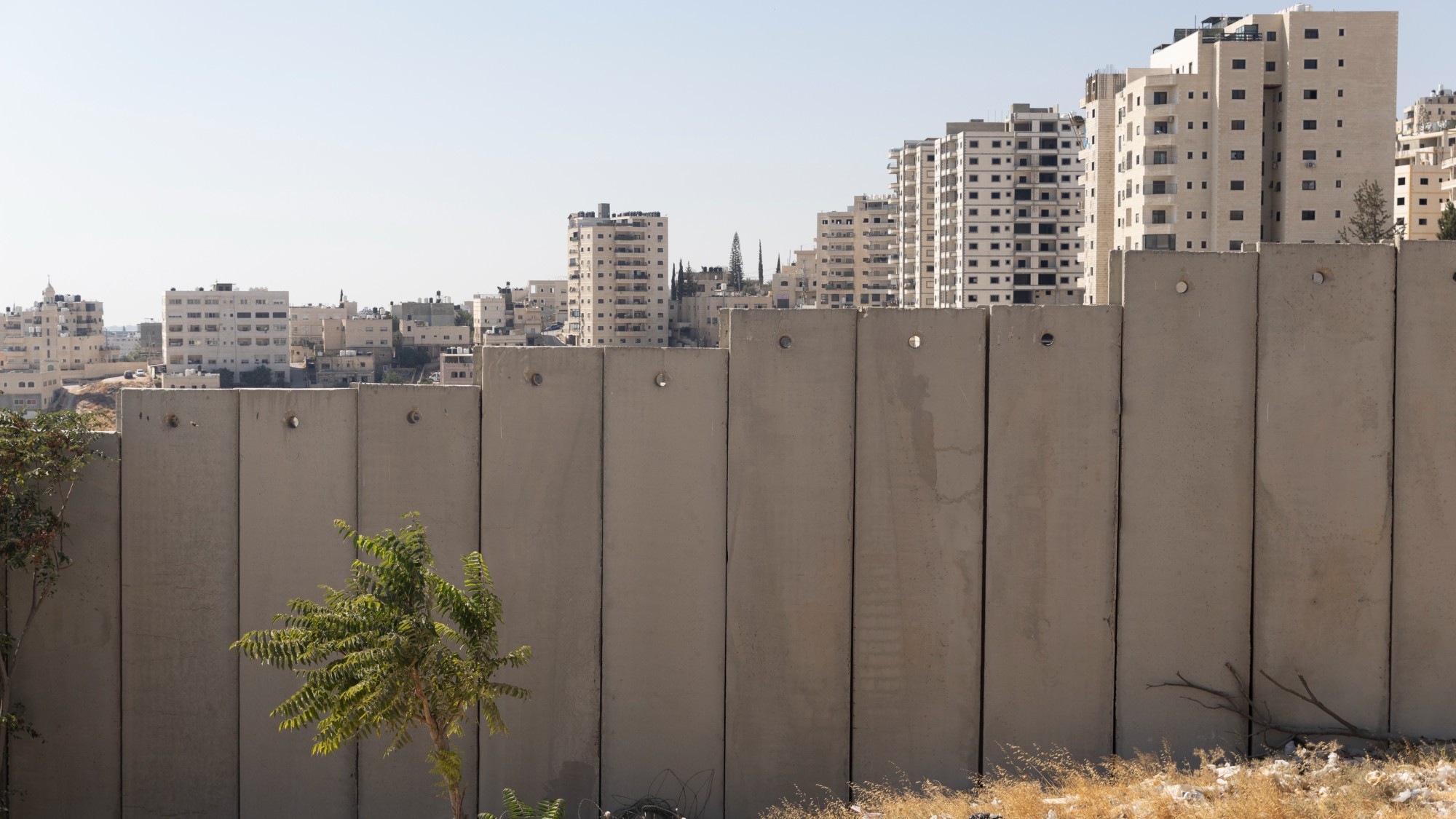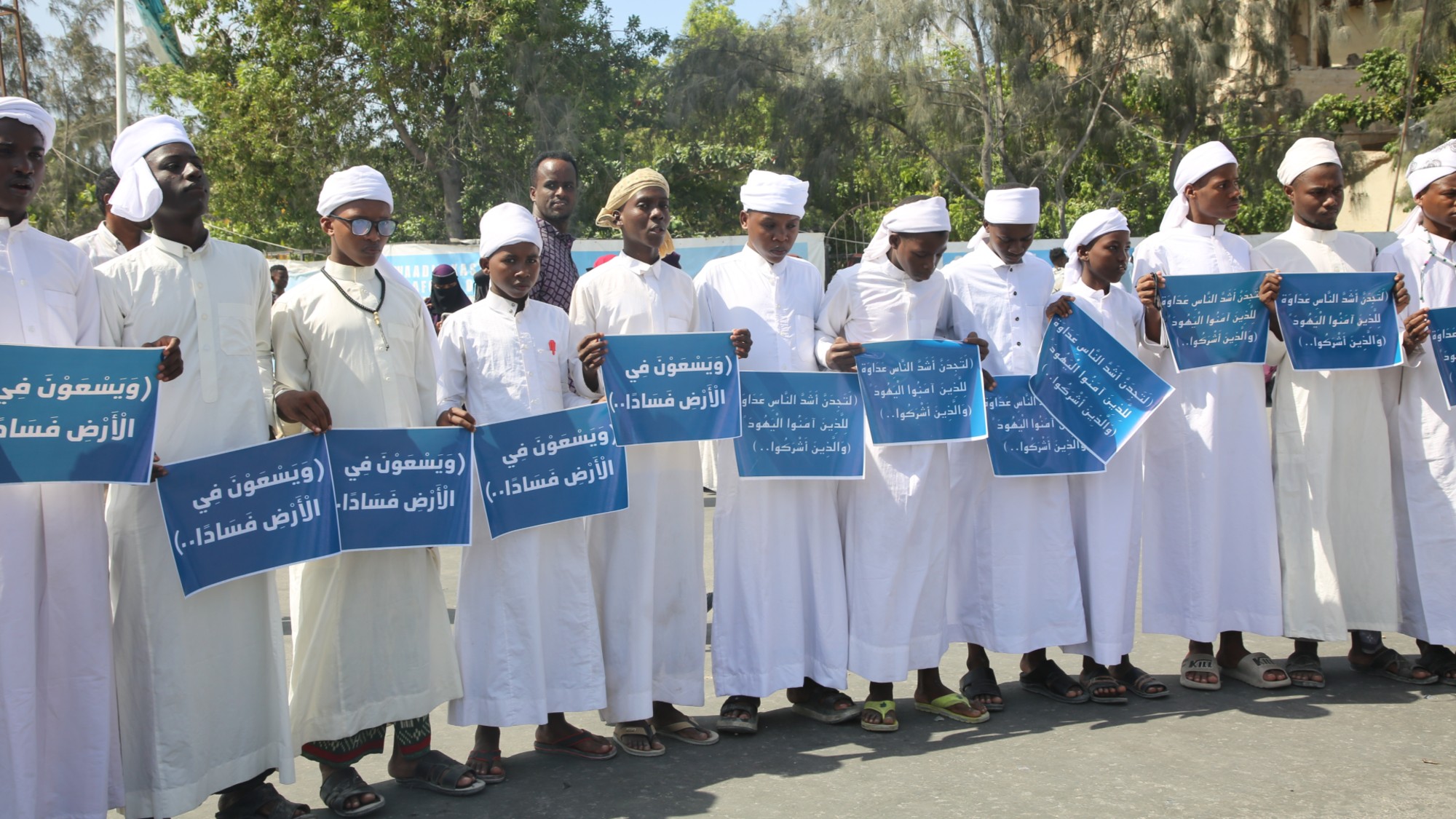How did Qatar become the world's peacemaker?
Strong relationships, ideological pragmatism and neutral positioning has made the tiny Gulf state 'the diplomatic capital of the world'

A free daily email with the biggest news stories of the day – and the best features from TheWeek.com
You are now subscribed
Your newsletter sign-up was successful
The latest round of ceasefire talks between Israel and Hamas faltered last week, but when both sides return to the table, it will once again be a table in Qatar.
Doha, the Qatari capital, has usurped the mediator role historically played by Washington in the Israel-Palestine conflict. The Gulf state's success in brokering an initial Gaza ceasefire in January "was the product of more than a decade of Qatari efforts to position itself as the Middle East's indispensable go-between", said Bloomberg.
Qatar is "a small nation in a volatile region, surrounded by swaggering players such as Saudi Arabia, the UAE and Iran", said The Guardian. "To shore up its fragile position", it has quietly "made itself into the diplomatic capital of the world".
The Week
Escape your echo chamber. Get the facts behind the news, plus analysis from multiple perspectives.

Sign up for The Week's Free Newsletters
From our morning news briefing to a weekly Good News Newsletter, get the best of The Week delivered directly to your inbox.
From our morning news briefing to a weekly Good News Newsletter, get the best of The Week delivered directly to your inbox.
What did the commentators say?
In diplomacy "relationships are key", said DW, "and Qatar is known for its wide and varied network of contacts". It has an ideological flexibility that has seen it simultaneously maintain close relationships with Israel, Hamas, the US and Iran.
In the past, it has funded or otherwise lent support to regional groups with conflicting agendas: from the Taliban in Afghanistan to the Muslim Brotherhood in Egypt to Libyan militias and anti-government revolutionaries in Syria, Tunisia and Yemen.
While it has worked with closely with the US, "Qatar has also been more pragmatic about Islamist organisations in the region, seeing these as part of popular political movements that cannot be erased or avoided". Qatar's success as a mediator ultimately "stems from its neutral positioning, lack of historical baggage with many parties, and willingness to engage with groups like Hamas, the Taliban and Western powers simultaneously", Abdulaziz Al-Anjari, from the Kuwait-based Reconnaissance Research, told Bloomberg.
The country's enormous resources give it crucial financial clout and independence, while its dynastic power structure enables its small team of negotiators – which includes senior members of the ruling Al Thani family – to make quick, unilateral decisions.
A free daily email with the biggest news stories of the day – and the best features from TheWeek.com
Those negotiators have built up a wealth of experience over the past decade and can point to tangible successes, including the release of Americans held in Iran, Afghanistan and Venezuela. While its primary focus remains on the Middle East, it recently oversaw talks aimed at ending the decades-long fighting between Congo and Rwanda-backed M23 rebels. It has also negotiated diplomatic breakthroughs between Sudan and Chad, and Eritrea and Djibouti.
What next?
Having "enhanced its reputation as an international mediator", Qatar has set about "considering which other conflicts they could help resolve", said Bloomberg. In a "soft-power play" backed by a $510 billion sovereign wealth fund, the country is currently "involved as a mediator in more than 10 other ongoing cases of various natures".
"The rewards Qatar seeks from this work are not immediate, tangible ones," said The Guardian. "They're not looking for investment opportunities, access to raw materials or a say in what happens after a deal is agreed" but rather "to be recognised as a player".
This is perhaps what makes them so attractive and effective as mediators. "The fruits of the brokering – building status and trust, which in turn deepen international influence and relationships – are the prize."
-
 Local elections 2026: where are they and who is expected to win?
Local elections 2026: where are they and who is expected to win?The Explainer Labour is braced for heavy losses and U-turn on postponing some council elections hasn’t helped the party’s prospects
-
 6 of the world’s most accessible destinations
6 of the world’s most accessible destinationsThe Week Recommends Experience all of Berlin, Singapore and Sydney
-
 How the FCC’s ‘equal time’ rule works
How the FCC’s ‘equal time’ rule worksIn the Spotlight The law is at the heart of the Colbert-CBS conflict
-
 Witkoff and Kushner tackle Ukraine, Iran in Geneva
Witkoff and Kushner tackle Ukraine, Iran in GenevaSpeed Read Steve Witkoff and Jared Kushner held negotiations aimed at securing a nuclear deal with Iran and an end to Russia’s war in Ukraine
-
 ‘Bad Bunny’s music feels inclusive and exclusive at the same time’
‘Bad Bunny’s music feels inclusive and exclusive at the same time’Instant Opinion Opinion, comment and editorials of the day
-
 Is the Gaza peace plan destined to fail?
Is the Gaza peace plan destined to fail?Today’s Big Question Since the ceasefire agreement in October, the situation in Gaza is still ‘precarious’, with the path to peace facing ‘many obstacles’
-
 How Iran protest death tolls have been politicised
How Iran protest death tolls have been politicisedIn the Spotlight Regime blames killing of ‘several thousand’ people on foreign actors and uses videos of bodies as ‘psychological warfare’ to scare protesters
-
 The Board of Peace: Donald Trump’s ‘alternative to the UN’
The Board of Peace: Donald Trump’s ‘alternative to the UN’The Explainer Body set up to oversee reconstruction of Gaza could have broader mandate to mediate other conflicts and create a ‘US-dominated alternative to the UN’
-
 Israel’s E1 zone in the West Bank: the death of the two-state solution?
Israel’s E1 zone in the West Bank: the death of the two-state solution?The Explainer Controversial new settlement in occupied territories makes future Palestinian state unviable, critics claim
-
 ‘The security implications are harder still to dismiss’
‘The security implications are harder still to dismiss’Instant Opinion Opinion, comment and editorials of the day
-
 What have Trump’s Mar-a-Lago summits achieved?
What have Trump’s Mar-a-Lago summits achieved?Today’s big question Zelenskyy and Netanyahu meet the president in his Palm Beach ‘Winter White House’